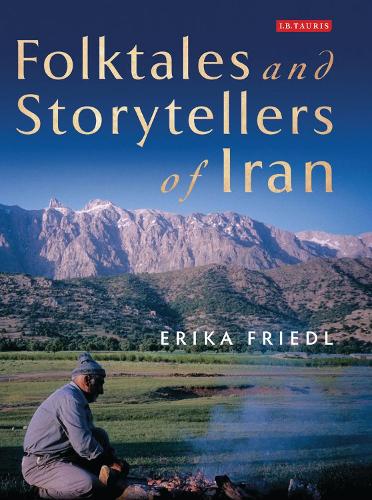
Folktales and Storytellers of Iran: Culture, Ethos and Identity
(Hardback)
Publishing Details
Folktales and Storytellers of Iran: Culture, Ethos and Identity
By (Author) Erika Friedl
Bloomsbury Publishing PLC
I.B. Tauris
28th February 2014
United Kingdom
Classifications
Tertiary Education
Non Fiction
398.20955
Physical Properties
Hardback
296
Width 138mm, Height 216mm
503g
Description
What are the myths and stories that penetrate a society's everyday practices What are the un-questioned 'truths' that hold the keys to understanding both the concept of self-perception and group identity Here, Erika Friedl highlights the role of the fairytale and folklore in the creation, transmission and manipulation of regional and national identities. Having carried out anthropological research in Iran since 1965, Friedl is uniquely placed to analyse the ways in which the folklore and fairy tales - both the stories themselves and the telling of the stories - have an impact on the idea of what it means to be 'Iranian'. Friedl approaches the relationship between nation and mythology at an ethnographic level, attempting to unite folktale texts with life as lived by the storytellers and listeners. This approach grounded in lived experience allows Friedl to detail the ways in which Iranians think about their lives and their culture by investigating the folktales that articulate, confirm and affirm the philosophical tenets upon which the Iranian people base their values on actions. Folktales are often vehicles through which both the narrators and audiences are able to express shared beliefs, ethics, concerns, experiences, behaviour patterns and assumptions. And it is with this in mind that the folktales provide here a key as to how people position themselves within their culture and society. As Friedl shows, Iranian folktales are documents of a philosophy, logic, ethics and theology, and express what choices the Iranian culture provides for how people may live and what to expect as they are making their days. Folktales and Storytellers of Iran explores the key ideas of cultural identity, self-knowledge and understanding, and how these are represented and developed through a rich literary tradition of folklore and storytelling in what was for a long time an oral-based culture.
Reviews
'By using unique, creative, and pioneering methods of research, analysis, and presentation, she has done far more than any other anthropologist to uncover aspects of Persian culture... It is therefore not surprising to me that Erika Friedl's current work also breaks new ground. It combines disciplines: folklore, ethnography and literary analysis. Friedl has used more than 150 folktales for the folklore aspect of the work. Further, she has conducted some 7-8 years of ethnography over the span of almost 50 years. I do not know of other examples of such intensive, long-term work in both folklore and ethnography. She is therefore, more so than any other scholar I know of, able to analyse the meanings of the folktales as understood by the tellers and the audience, and the applicability of the folktales' meanings to their own lives, relationships, and culture. She sees how the folktales uncover ideas, understandings, and meanings, about life, culture and reality, which are sometimes otherwise unexpressed.' P rofessor Mary Elaine Hegland, Department of Anthropology, Santa Clara University, California ' This book is a particularly interesting contribution, since it combines approaches from ethnography/anthropology and literature studies, particularly folklore. Interpreting the Persian folktales from her region of interest against the ethnographic context enables the reader to see the texts as resulting from a particular world-view whose major characteristics are developed through insightful commentaries based on decades of personal experience. Erika Friedl's diligent analysis thus sheds new light on the relationship of folktales and their surrounding culture. Her findings are highly relevant not only for Iranian Studies and Cultural Anthropology, but also for the general fields of folklore and studies in literature.' Professor Ulrich Marzolph, Georg-Auguest University of Gottingen
Author Bio
Erika Friedl is Professor Emerita of Anthropology, Western Michigan University, Kalamazoo, Michigan.
